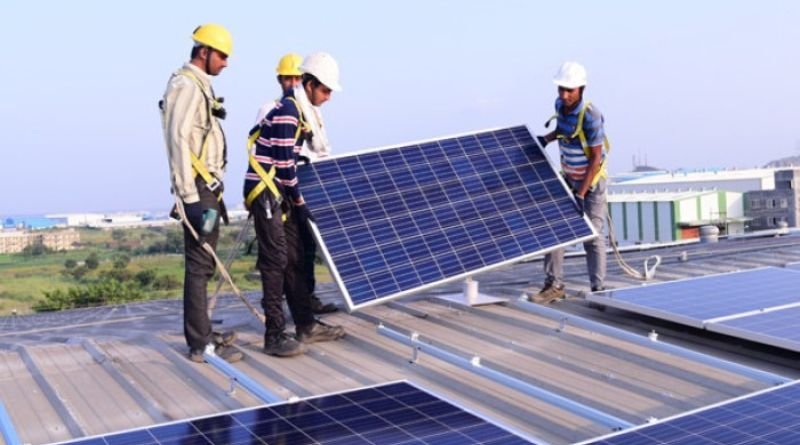Solar is a growing energy source, and knowing if it’s the right option for your home can be challenging. We’ve compiled answers to common questions about solar installation in this article so that you can make the best decision for your needs.
Solar panels are made of photovoltaic cells, producing electricity when light passes through them. These cells are usually made of silicon; when they interact with photons, they release electrons. This creates direct current (DC) electricity, which an inverter converts to alternating current (AC).
What is the process?
The solar installation process from Thornton CO Solar Provider – Solar By Peak to Peak involves eight essential steps. The length of time each step takes depends on the complexity of your home and local regulations.
The first step is an engineering site visit. During this process, an engineer assesses your roof and determines whether it is suitable for solar. This includes evaluating electricity usage, roof characteristics, and local building codes.
Once your engineer completes their assessment, permitting and documentation are the next step. This can take anywhere from two to six weeks, depending on the complexity of your system and the amount of paperwork required.
After permits and documentation are in place, your installer will order your solar system’s equipment. This includes the panels, inverters, and other hardware needed to power your home.
Once your equipment arrives, the solar installer will install it on your roof or a ground mount. This will usually take one to three days.
How long will it take?
One of the most common questions homeowners have is how long it will take to complete their solar installation. While it can vary, the process usually takes two to six months.
Depending on your location and local government, getting the necessary permits can take a few weeks. Some cities have special solar-specific licenses, while others require a complete electrical and building permit application, with system schematics and energy production projections included.
Once the permits are approved, we’ll schedule a site assessment and installation. During this visit, a solar professional from solar by Peak to Peak will assess your roof to ensure it supports a solar installation. They’ll also check your electrical panel to ensure it can handle the power you’re producing.
Once the site assessment is complete and you’ve signed a contract, the solar company will pull all the necessary permits and install your system. Assuming everything runs smoothly, the installation can take about one week.
How much will it cost?
A few key factors will determine how much it will cost to install your solar system. These include the number of panels you need, where they’ll be mounted, and whether or not you’ll add energy storage.
During your consultation, a representative from a reputable solar company will be able to help you estimate how many panels you need. Generally, you need at least 25 to 35 solar panels to achieve complete energy independence.
It’s also important to consider your home’s energy usage and state-specific net metering policies. These can affect your payback period and savings over time.
In addition to these factors, solar installation costs can vary significantly depending on your location and the size of your system. However, if you can find a good deal on a solar system, you can often save more money in the long run than paying for electricity from your local utility.
How do I know if I’m making the right decision?
If you are considering a solar installation, you must answer several questions before making the final decision. It is essential to ask these questions because this will help you make an intelligent choice that will save you money over time.
Cost: Installers can vary in pricing, and some may be more than others, so it is always best to compare quotes from multiple installers. To do this, check out the Lawrence Berkeley National Laboratory’s Tracking the Sun report for installation prices across the United States.
Performance & Warranty: It is essential to determine how long your equipment will last and whether or not it comes with any warranties. This will ensure you can get the most out of your system and help protect you from expensive repairs.
Another fundamental question is whether or not your installer will provide a monitoring system to help you track the health of your panels. A good quality third-party monitoring system will know when your panels are not producing as much energy as they should be, and it will alert you.
